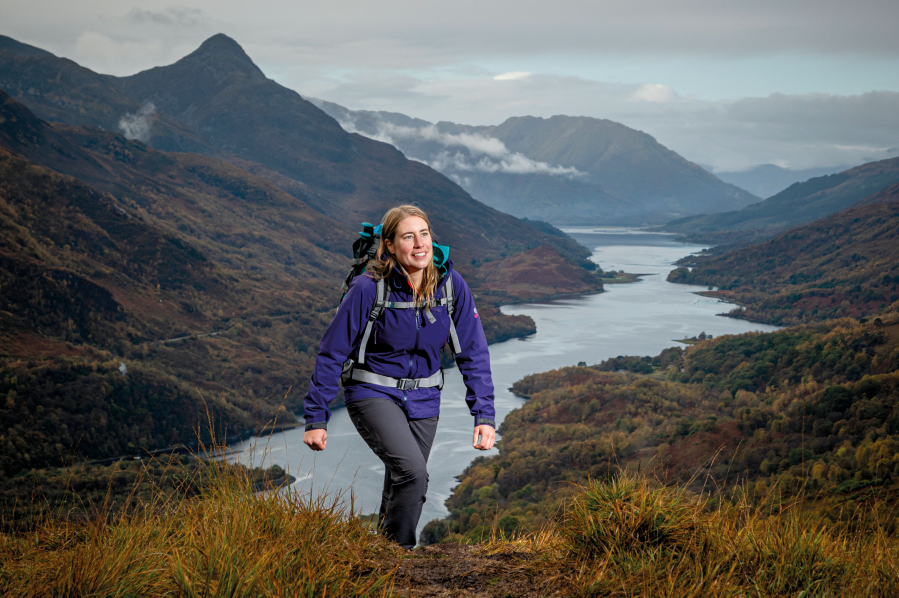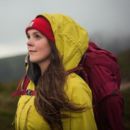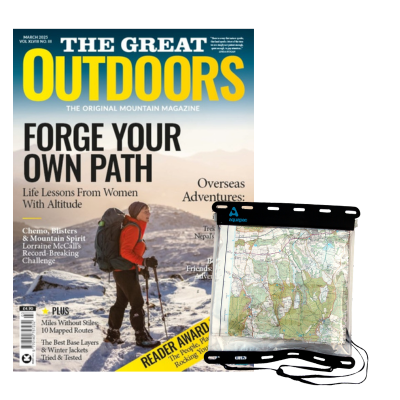Searching for more remote rambles? Our May issue is your companion to exploring the back of beyond on Britain’s less popular and much-maligned mountains.
“And the best bit?” the hillwalker boasts over their pint, “We had the summit all to ourselves!” A familiar exchange, no doubt. Even the most gregarious of hillwalkers who abide by greeting etiquette with gusto can be known to echo pro-solitude sentiment. Many of us are guilty of describing deserted summits as the cherry on the mountain cake. Yet, the dream to wander lonely as a cloud can feel like a futile pursuit in an age when almost a quarter of the British public consider themselves ramblers (23% in 2020 up from 16% in 2018 according to a Mintel survey of almost 2,000 UK residents). The latest Sport England Active Lives report of April 2023 – the first to cover a period without any coronavirus restrictions – shows that hillwalking continues to grow with 2.6m more walkers compared to before the pandemic. This, compared to our islands’ 6.4m cyclists, 5.9m runners and 3.8m swimmers in total. We’ve picked a popular horse to back to the back of beyond!
Main image: Cat Lear on the path up to Loch Elide Mòr | Credit: Dougie Cunningham
In this issue, our contributors revisit much-maligned mountains and offer alternatives up to the honeypot heights. One examines the lone figure in the great outdoors, an image from a bygone Wordsworthian age, while documenting the joy and independence of aloneness. Time alone can be good for us all – in moderation. So, let’s seek new paths, spread out into new adventures and make space for all who chose to love and respect the outdoors.
Highlights of this issue:
- Hanna Lindon sticks up for the unpopular peaks in Britain
- David Lintern explores an ‘un-get-at-able’ island off the coast of Scotland
- James Lloyd, who walked the whole coast of Britain solo, considers loneliness
- Sarah Hewitt and her partner trek Manaslu in the Nepalese Himalayas
- Learn how to take better care of your feet with advice from Alex Roddie
- Enjoy a quiet walking weekend in the Cheviots with guidance from Vivienne Crow
- Thousands of ‘access islands‘ revealed across England
- Our experts map 10 walking and camping routes on which to watch the sun set – and rise!
PLUS: Jim Perrin paints a portrait of Carn Ingli; honest and trusted reviews of the best backing packs and three-season hiking boots; on the 75th anniversary of the act which instated national parks and national trails, Mary-Ann Ochota looks back on the history of war-weary land justice warriors; our reviews of new outdoor books to inspire; and Right to Roam campaigner Nadia Shaikh fights for nature connection unbound by maps.
Read more:
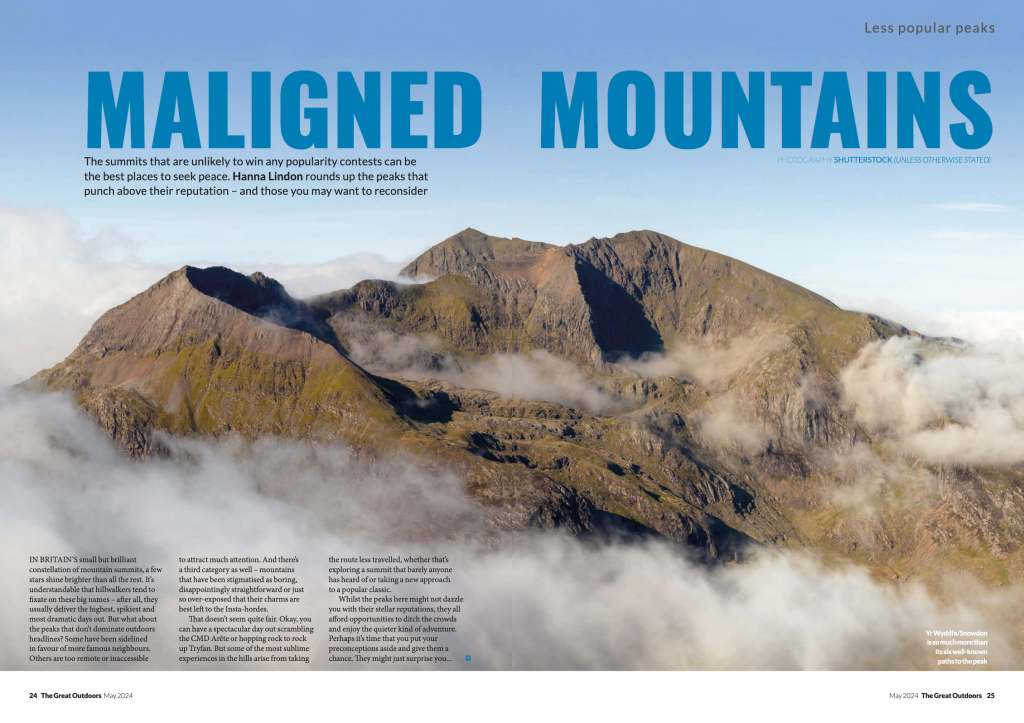
Maligned mountains: The least popular summits are sometimes the best places to find peace and quiet. Hanna Lindon rounds up the peaks that punch above their reputation.
“In Britain’s small but brilliant constellation of mountain summits, a few stars shine brighter than all the rest. It’s understandable that hillwalkers tend to fixate on these big names – after all, they usually deliver the highest, spikiest and most dramatic days out. But what about the peaks that don’t dominate outdoors headlines? Some have been sidelined in favour of more famous neighbours. Others are too remote or inaccessible to attract much attention. And there’s a third category as well – mountains that have been stigmatised as boring, disappointingly straightforward, or just so over exposed that their charms are best left to the Insta-hoards. That doesn’t seem quite fair…”
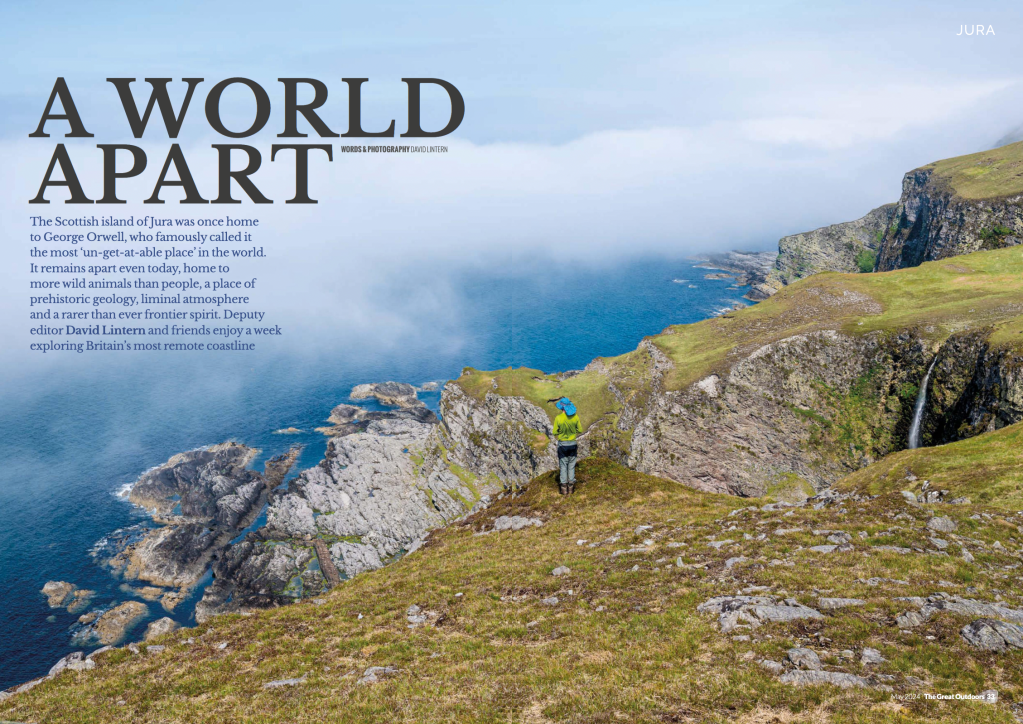
A world apart: The Scottish island of Jura was once home to George Orwell, who famously called it the most ‘un-get-at-able place’ in the world. It remains apart even today, home to more wild animals than people, a place of prehistoric geology, liminal atmosphere and a rarer than ever frontier spirit. Deputy editor David Lintern and friends enjoy a week exploring Britain’s most remote coastline.
“We’re told over and over that we don’t have ‘wilderness’ – we don’t have the scale or the same system of public lands as the States. Learning more about our own history of enclosure, as well as that of other countries, I’ve grown to understand how our own domestic trauma was exported to foreign fields in the form of colonialism and wondered if we’re looking for answers in the wrong place. Maybe we have more in common with others, despite our size. Perhaps our wild frontiers might still be best sought at the fringes, just like the ‘Wild West’ of the past. The ‘wilderness’ of America was certainly populated by native peoples, as was ours. And remote from where, exactly? Does human presence make it less wild, or do we need to rethink? I want to tell you about a place in Britain where the road really does end…”
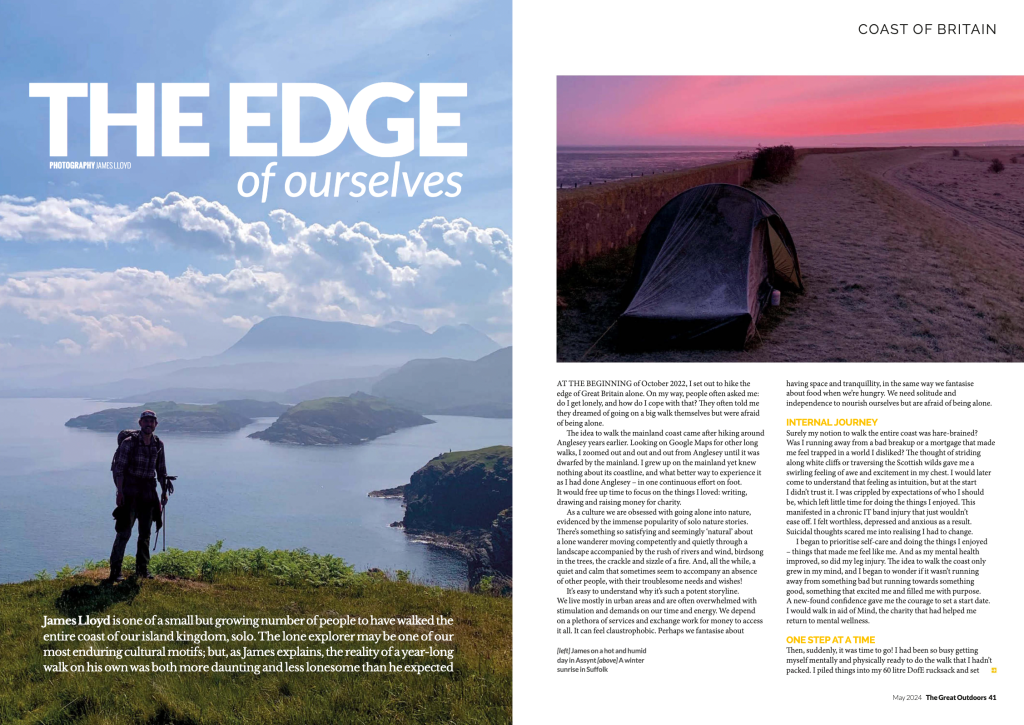
The edge of ourselves: James Lloyd is one of a small but growing number of people to have walked the entire coast of our island kingdom, solo. The lone explorer may be one of our most enduring cultural motifs, but as James explains, the reality of a yearlong walk on his own was both more daunting and less lonesome than he expected.
“As I soon discovered, solitude is a great opportunity for personal growth. Every decision was mine to make and to learn from; from what I chose to eat, where and when I camped, the seemingly endless micro navigation around the complex Scottish coastline, even what to do when a farmer drove his land rover at my tent! As I walked through winter storms and camped in freezing temperatures, I began to realise I was capable. There were many mistakes, too…”
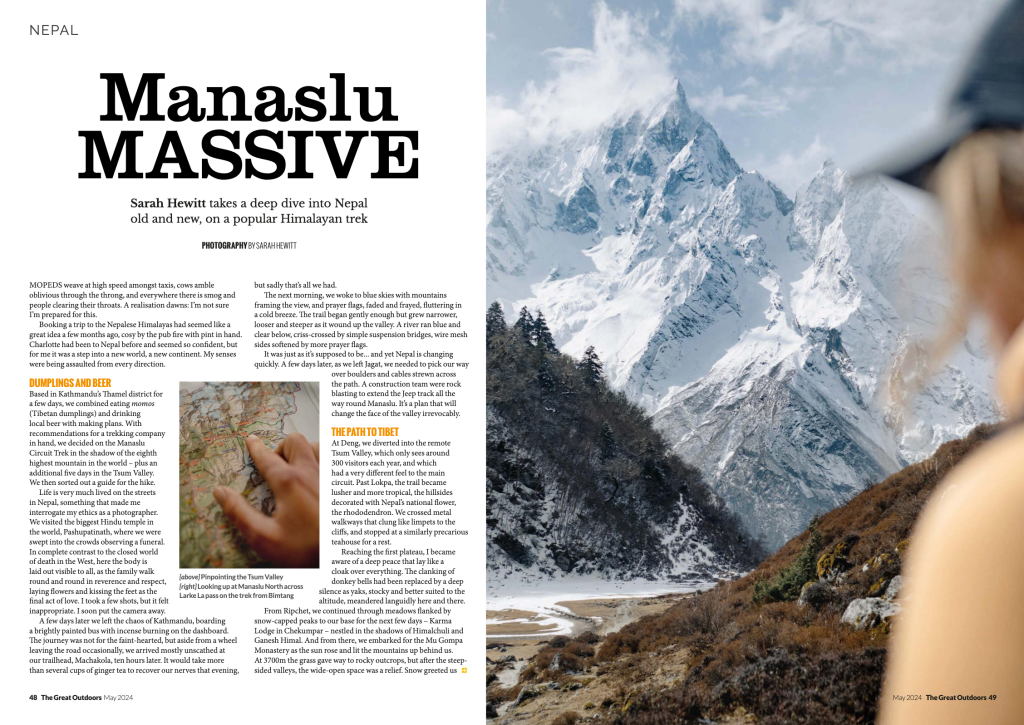
Manaslu massive: Sarah Hewitt takes a deep dive into Nepal, old and new, on a popular circuit of Manaslu.
“The next morning, we woke to blue skies with mountains framing the view, and prayer flags, faded and frayed, fluttering in a cold breeze. The trail began gently enough but grew narrower, looser and steeper as it wound up the valley. A river ran blue and clear below, crisscrossed by simple suspension bridges, wire mesh sides softened by more prayer flags. Just as it’s supposed to be… and yet Nepal is changing quickly.”
Order a single copy of this issue and get it delivered with free postage.

